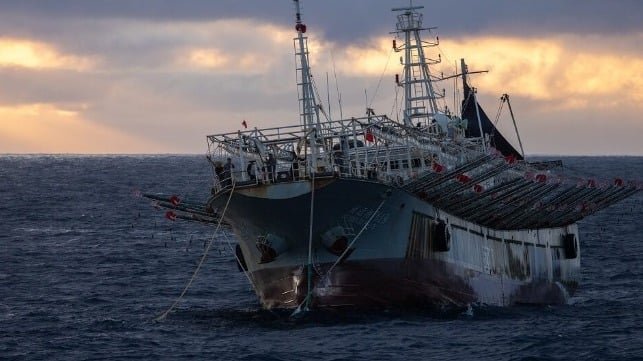The High Cost of China’s Fishing Fleet: The Story of Daniel Aritonang
Daniel Aritonang graduated from high school in May, 2018, hoping to find a job. Short and lithe, he lived in the coastal village of Batu Lungun, Indonesia, where his father owned an auto shop. Aritonang spent his free time rebuilding engines in the shop, occasionally sneaking away to drag race his blue Yamaha motorcycle on the village’s backroads.
Like thousands of other Indonesians, Aritonang answered an advertisement to work aboard a Chinese fishing ship, traveling the world, combing the high seas. Eighteen months later, he was dead, his body dropped off, beaten and bloated on a dock in Montevideo, Uruguay. The mysterious death was hardly unusual: for the previous 5 years that same port saw one dead body per month dropped off, mostly from Chinese fishing ships, which have, the world over, a reputation as the most brutal.
China’s Expanding Fishing Fleet
China’s distant-water fishing fleet has grown significantly in recent years, with estimates suggesting it may have as many as sixty-five hundred ships. This expansion, fueled by economic and political motives, has led to rampant illegal fishing practices, labor trafficking, and human rights abuses.
As China’s influence at sea has increased, so have the consequences for workers and the environment. The interconnectedness of the global economy, particularly between the US and China, has highlighted the dark side of China’s maritime operations.
The Tragic Journey of Daniel Aritonang
Before joining the crew of the Zhen Fa 7, Aritonang struggled to find work in Indonesia, where unemployment rates, especially among youth, were high. Desperate for employment, he and a friend turned to a manning agency, a common but often abusive practice in the maritime industry.
Boarding the Zhen Fa 7 in 2019, Aritonang embarked on a perilous journey across the Pacific, chasing squid in international waters off the coast of South America. The conditions on board were dire, with low pay, poor living conditions, and inadequate access to medical care.
The Tragic End
By early 2021, Aritonang fell severely ill with beriberi, a disease caused by thiamine deficiency. Despite pleas from his fellow crew members, the captain refused to provide adequate medical attention. Aritonang’s condition deteriorated, and he was eventually transferred to a nearby vessel, where he later died in a hospital in Montevideo.
Consequences and Accountability
Following investigations into Aritonang’s death and the wider pattern of abuse in China’s fishing fleet, international outrage and action were sparked. Authorities in multiple countries held hearings and imposed bans on seafood imports linked to vessels involved in forced labor and human rights violations.
About the Author
Marcella Boehler is global publishing editor at The Outlaw Ocean Project, a non-profit journalism organization based in Washington D.C. that produces investigative stories about human rights, environment, and labor concerns on the two-thirds of the planet covered by water. Season Two of The Outlaw Ocean Project’s podcast series may be found here.

